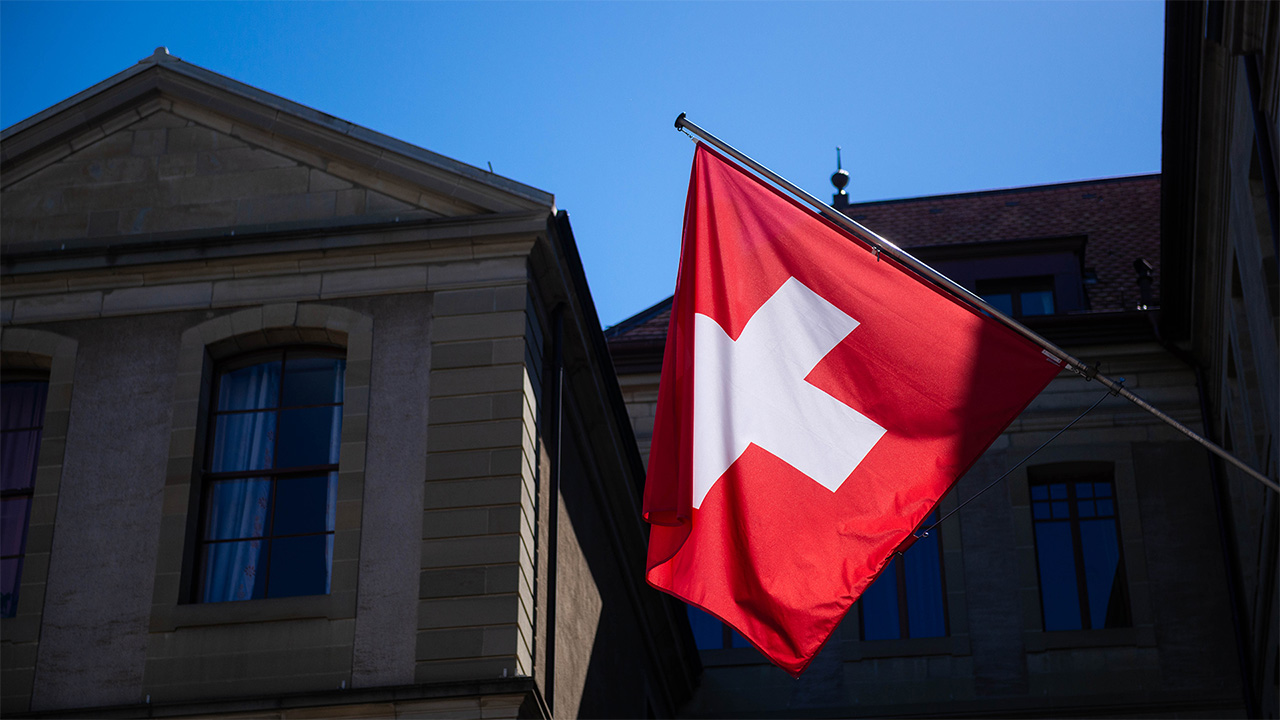Proton refuses to be 'held hostage' by controversial Swiss surveillance law
Most of its physical infrastructure will be moved out of Switzerland, starting with Lumo AI

Here at Tom’s Guide our expert editors are committed to bringing you the best news, reviews and guides to help you stay informed and ahead of the curve!
You are now subscribed
Your newsletter sign-up was successful
Want to add more newsletters?

Daily (Mon-Sun)
Tom's Guide Daily
Sign up to get the latest updates on all of your favorite content! From cutting-edge tech news and the hottest streaming buzz to unbeatable deals on the best products and in-depth reviews, we’ve got you covered.

Weekly on Thursday
Tom's AI Guide
Be AI savvy with your weekly newsletter summing up all the biggest AI news you need to know. Plus, analysis from our AI editor and tips on how to use the latest AI tools!

Weekly on Friday
Tom's iGuide
Unlock the vast world of Apple news straight to your inbox. With coverage on everything from exciting product launches to essential software updates, this is your go-to source for the latest updates on all the best Apple content.

Weekly on Monday
Tom's Streaming Guide
Our weekly newsletter is expertly crafted to immerse you in the world of streaming. Stay updated on the latest releases and our top recommendations across your favorite streaming platforms.
Join the club
Get full access to premium articles, exclusive features and a growing list of member rewards.
Proton has said it is moving most of its physical infrastructure out of Switzerland due to concerns surrounding the country's proposed surveillance law.
Its new Lumo AI assistant is the first product to move, as it looks to invest in, and embrace, the wider European continent.
This would impact all of Proton's privacy-focused products, including Proton VPN – one of the best VPNs we've tested.
Back in May, Proton CEO Andy Yen initially hinted that the provider could leave Switzerland if the surveillance law was passed.
Traditionally, Swiss privacy laws have been very strong but revisions to its encryption law are proposing increased surveillance obligations, data collection, and user identification.
The law's amendments are yet to be approved but Proton isn't taking any chances.
A phased move
Proton won't be moving all of its physical infrastructure out of Switzerland straight away, with a phased approach being taken.
The decision was first noted in Proton's announcement of Lumo – its new, privacy-focused, AI assistant.
It said "because of legal uncertainty around Swiss government proposals to introduce mass surveillance – proposals that have been outlawed in the EU – Proton is moving most of its physical infrastructure out of Switzerland. Lumo will be the first product to move."
Proton will continue its fight against the proposed surveillance law and argued it would be "extremely damaging to the Swiss economy."
However it is also embracing the wider European continent and shifting Lumo out of Switzerland represents a €100 million plus investment into the EU.
Speaking at the time of Lumo's launch, Andy Yen said its infrastructure will be located in Germany. Proton is also developing facilities in Norway, at a cost of CHF 100 million.

The Proton team commented under a Reddit post clarifying its position.
It said: "Proton's infrastructure is being diversified to Europe, so if the Swiss legal revision that we are opposing succeeds, Proton can't be held hostage by Switzerland by having all of our immovable server infrastructure stuck in the country."
It added that Proton, and all of its products, remain under Swiss jurisdiction for now. It's important to clarify that although dangerous privacy laws are being proposed, they haven't yet been approved.
As it stands, Switzerland's privacy laws remain strong and all Proton products continue to reap the benefits of this. It will continue to protect users with high standards of encryption, audited no-logs policies, and class-leading security.
Strong feelings
The proposed Swiss encryption laws have led to strong debates and cloud security company Infomaniak clashed with Proton over it.
Infomaniak accused Proton of having a "lack of knowledge of Swiss political institutions" but subsequently released a statement saying it opposed the law's revision in their current form.
The law seeks to collect and store user information, including metadata. Significant identifiable information can be harvested from metadata and this would seriously undermine services offering any type of encrypted communication.
Threema and NymVPN are two other Swiss-based privacy providers that have opposed the law. The latter expressed its fundamental opposition to the changes in a detailed statement back in April 2025.
We test and review VPN services in the context of legal recreational uses. For example: 1. Accessing a service from another country (subject to the terms and conditions of that service). 2. Protecting your online security and strengthening your online privacy when abroad. We do not support or condone the illegal or malicious use of VPN services. Consuming pirated content that is paid-for is neither endorsed nor approved by Future Publishing.

George is a Staff Writer at Tom's Guide, covering VPN, privacy, and cybersecurity news. He is especially interested in digital rights and censorship, and its interplay with politics. Outside of work, George is passionate about music, Star Wars, and Karate.
You must confirm your public display name before commenting
Please logout and then login again, you will then be prompted to enter your display name.
 Club Benefits
Club Benefits










